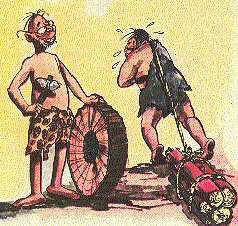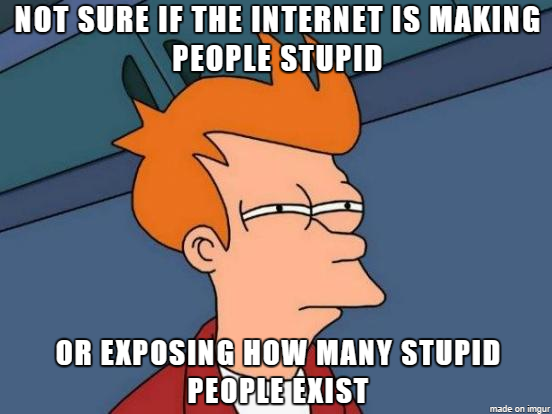
"Is Google making us Stoopid" is a magazine article by technology writer Nicholas G. Carr published at The Atlantic magazine as a six-page cover story. It was highly critical on the Internet’s effect on cognition. The article wasn’t really focused on targeting Google but on the detrimental effects on cognition of the internet as a whole. (wikipedia)
The author had a decent argument. He argued that long exposures from the internet diminish the capacity for concentration and contemplation. This was extensively discussed in the media and the blogosphere, some are actually focused on the apparent bias in Carr’s argument toward literary reading. In his view, reading on the internet is generally a shallower form of reading compared to reading from printed books in which he believes a more intense reading.
In my own perspective, his argument lacked one thing, he didn’t consider the concept of change and it’s effects on humanity. Sure, the advent of the internet might have brought a lot of trouble in our society but it doesn’t necessarily mean that it’s bad and is making us less capable. It’s basically the same as the parable of “When man met the simple machine that is the wheel”.

When man discovered the wheel, it sure made his work a lot easier but it made his productivity lesser at first, he wasn’t happy with the result because it made his productivity lesser than when he was still transporting large logs of wood and heavy stones stones with his bare hands. So he took some time to think, he was torn between the ideas of switching back to manual labor or transcend tradition and embrace the ease and convenience that pursuing innovation might give. He thought about it as hard as he could. Finally he decided to master the art of innovation and because of that aptitude, his work productivity gradually increased in an exponential rate as he kept on innovating overtime.

Now going back to Carr’s argument, he was actually right about the issue on focus and contemplation. But his argument was only conceited within his merely limited scope of observation. My theories are that the article was just another vain attempt of selling-out or maybe just another witty propaganda to make people think. Either way, it really made people think.

One more thing, being stupid is a choice as well as a disease. Stupidity mutates from several different things but those things are rather personal. It’s not the machines that made us rather lazy and stupid, it is a basic human instinct to seek pleasure and convenience. Carr’s argument was rather focused on the time being wherein humanity was still stigmatized by the rapid technological advancements.
Image Links: 1, 2, 3, & 4
References: 1,2, & 3


but it makes our life easier
I don't think google is making us stupid, rather it makes us lazy and lax.
Indeed!